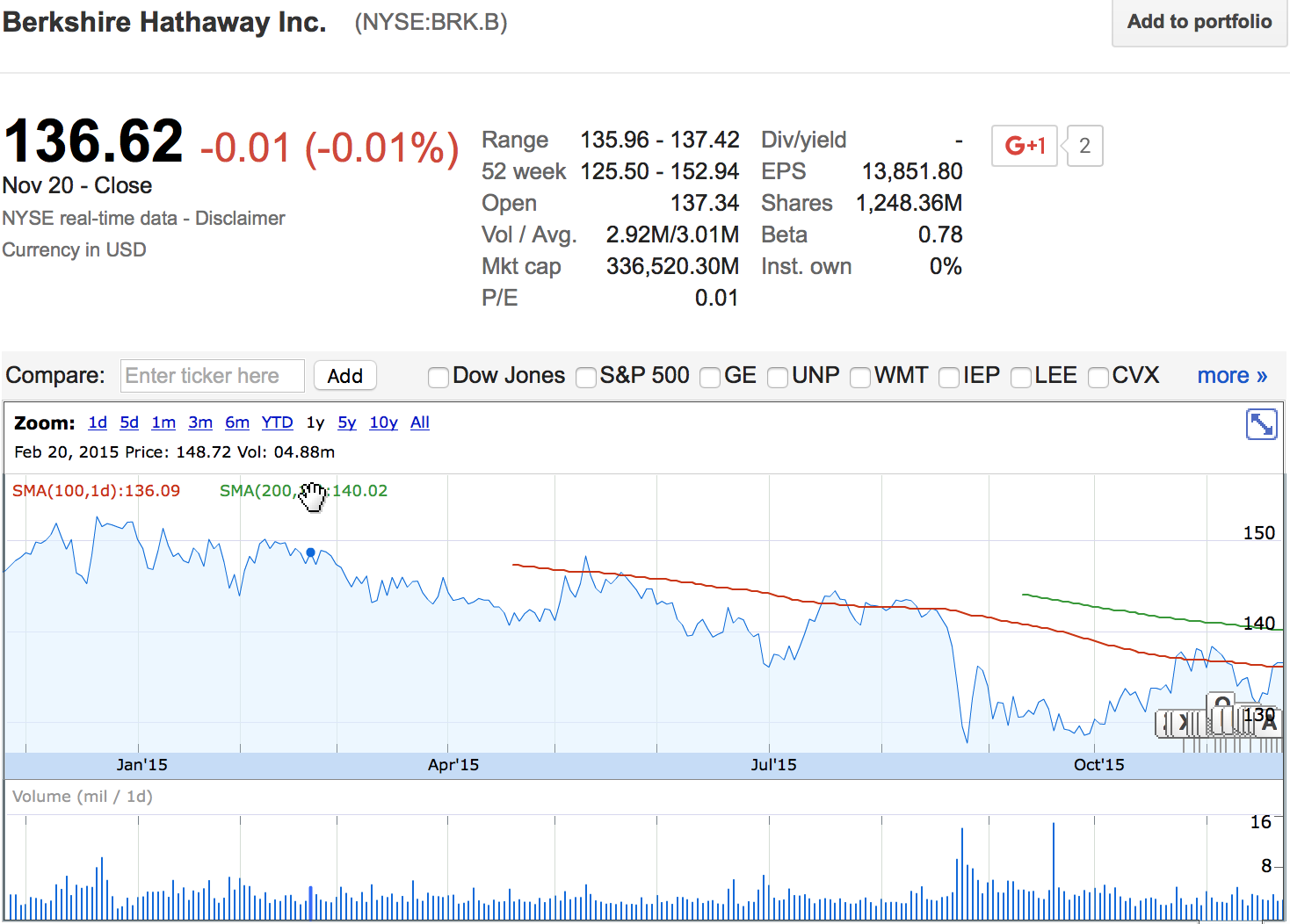Warren Buffett’s share buyback policy is to purchase stock in Berkshire Hathaway if its common stock falls to or below 120% of its net book value per share.
I last bought into Berkshire at £70.78 and sold two years later at £94.28. I’m not sure what the exchange rate was at the time of purchase (April 13) but I remember feeling like I had bought way too late. In late 2012 the stock was floating at or around 120% of net book value, but Warren hadn’t announced his buyback policy. I thought it was notably cheap, but ended up sucking my thumb for 5 months and eventually buying in after the announcement of their 2012 results, at a price that proved to be attractive, albeit 25% higher than the price when I had thought “buy this"
Anyway, a combination of general pessimism and exchange rate fluctuation now makes me think that the opportunity is coming around once more.
I thought it would be a good call to check out how close to the 120% limit it was.
Class A shares (fully diluted): 811,281
Class B shares (full diluted): 1,248,111,334
Net book value ($): 248,300,000,000 (at end 2014)
$ Book value per Class B Share (inc Class A shares at 1:1500): $100.73
£ Book value per Class B Share: £66.30
Current share price ($): 136.62 (£) 89.93
Exchange rate (£:$): 1.5192
Berkshire stock is down about 10%, more or less, over the last twelve months. Price is in the mid 130s. I had hoped that it would drift a bit lower, but it seems to be pretty range bound.

Net Book Value has increased about 6% since the end of 2014, so the premium to book value is about 130%. The question is - what do you get for your 130% plus premium?
Growth has been much lower in the last ten years than in the previous 40. an unsurprising situation, given the size of the organisation now, capitalised as it is around $350bn.The following extract from the annual report shows the last 6 years returns (measured in terms of increase in Book Value per share over the period)
2009 19.8
2010 13
2011 4.6
2012 14.4
2013 18.2
2014 8.3
So, an average of 13.05%. If I went back a further year (to 2008) I find a rare example of a reduction in net asset value, which would make the 7…




